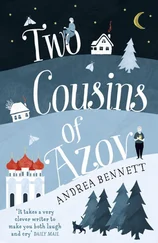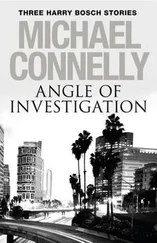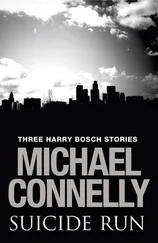Galia nodded in agreement.
‘I am sure if we had access to the figures we’d find out that the death rate for over Seventies rises exponentially after an eight-hour wait on a hard wooden chair in a draughty brown corridor waiting for the third secretary’s underling to turn up,’ Zoya went on. ‘And my arse is numb, totally numb!’
The ladies had been waiting a long, long time. The Third Secretary Internal Affairs: Southern (Non Caucasus) was clearly having a very busy day. Now new people fought their way in through the heavy oak doors every so often, mopping their necks and foreheads with damp handkerchiefs as they waited self-consciously at the desk. Their time of arrival had no bearing on when they were actually seen. The anxiety in the waiting area rose to breaking point each time a bureaucrat emerged slowly into the corridor and clicked their way with deliberation, and sometimes a detour or two, towards the waiting area. The bureaucrats would bark out a reference number, and that would be it. Some people arrived and were seen within an hour. Some were sent straight back out again. But by late afternoon, no-one seemed to have waited as long as Galia and Zoya. The crimson-faced farmer had been seen by two. She did not, however, return. Maybe she was still in the building somewhere, being interviewed or filling in papers with scratchy pens, in the right order and the right colour, which made sense to no-one except the functionaries themselves. Galia shut her eyes and her head began to nod. Pictures passed before her closed eyes of piles of paper, pens that didn’t work, clocks on the wall and magical numbers, snarling policemen and whimpering dogs. The whole system was a mystery, and the man with the insider knowledge to unlock its secrets, the esteemed Grigory Mikhailovich, had steadfastly refused to put in an appearance. A small tear trickled from the corner of Galia’s right eye, and she gave herself up to a little sleep. Sleep was what she needed, a drop of restorative shut-eye, and a chance to forget about Moscow and dream about her garden and Boroda.
* * *
Across town, the man himself, the bear with wolf’s eyes, was having a good day. The glossy black ZIL limousine had oiled round the corner at the allotted time and he himself had, by the filmy skin of his gold-capped teeth, made it to the corner of the road to meet it. Good days were seldom in this clapped out excrescence of what had been his life. He savoured the juice of it and cherished the feeling of mild success, at least of nothing having gone painfully wrong, in the depths of his cavernous, badly sprung chest. The odd good day kept him going when otherwise the only appointment on the horizon was with death, or worse, with one of Kolya’s totally indigestible stews and clever-dick conversation.
Grigory Mikhailovich held Kolya in his heart along with the memory of his grandmother, Grigory’s cousin Elizaveta, and did his best to educate the boy on his long-dead relative’s behalf. But the boy’s cooking was really beyond his worst imaginings. Worse than anything the NKVD had ever dreamt up. Worse than the worst years of the 1970s and 80s when rice was looked upon as a luxury and the value of a food was measured by its fat content alone. The fattiness of those years clung to Grigory Mikhailovich’s arteries like a warm, thick overcoat, but still he survived, dumbfounding his doctors and former colleagues alike. One by one, his former underlings had succumbed to strokes, heart attacks, freak accidents, brain tumours, piles as big as plums and warts with their own, hidden agendas. And Grigory Mikhailovich had outlived them all, to his own chagrin, to become an old man, cared for by a young relative who had little conversation and no interest in anything other than the study of electronics, imported arty films and girls.
So, the ZIL had come early, and Kolya’s re-re-fried pasta had stayed locked in the fridge. The rest of the day had proceeded with great ease, and all had gone to plan, as far as Grigory Mikhailovich could recall. His early morning trip to the banya had been very welcome, and he felt utterly refreshed, if very hungry, after having sweated, sploshed and napped there for a few hours. But at the back of his mind, he had a nagging suspicion that he had forgotten to do something – like turn off the kettle, or put the cat out, but not exactly that. Maybe Kolya would be able to remind him later. Lunch at his club had been fulsome, and the drive around Moscow’s boulevards afterwards had been slow enough for him to digest fairly well by the time he reached home.
Once back at the apartment, Grigory Mikhailovich had determined to make his own tea, since there was no-one home to do it for him. Waiting by the stove, he noticed a note on the table, in his own hand. He reached out for it slowly, struggling to recall what it might say. As he read the brief words scrawled on it, he remembered, fully and vividly, the night before, the plan, and the reason that the two ladies, Zoya and the other, quiet one, were staying at his flat. He turned the gas off, heaved himself back in to the hall, and picked up his briefcase. He entered the combination, and checked inside: everything was in order, including the pistol he’d pinched from Zoya’s travel bag, for some reason he couldn’t now recall.
He took the crusted plastic phone from its box in the hallway and plugged it in to the jack. The line buzzed, and he pressed in the numbers with a certainty that rarely visited him.
‘Come for me, now. I have business.’ He threw the receiver back down and made for the door, his blue eyes gleaming. The game was on.
Immersed in the yellow light dripping from the over-ripe bulb above his head, Vasya turned the pages of the book, slowly and with some care. Its ancient leaves crinkled softly, here and there stuck together with dubious substances, and in other places so well-thumbed that they were almost translucent, like dead butterfly wings between his shaking fingers. The pictures on the pages were grainy and dark; old-style reproductions that reminded Vasya, on a certain level, of the school books he’d formerly worked with, which gave the people depicted in them an alien, or perhaps corpse-like, air. Vasya had never really minded poor pictures before: the badly stuffed faces were neither here nor there, and he hadn’t dwelt on it. But now, in this cell full of murmuring shadows and physiognomies that were only half visible, or only half there, he wanted bright colour and clean lines, and innocent smiles that reeked of minty freshness and apples. The cell felt like a living reproduction of the book’s pictures: Vasya craved the comfort of bright lines to reassure him that the outside that he remembered was, indeed, real. How long had he been in this stinking room.
‘Good, isn’t it?’
Shura leant in closely over Vasya’s shoulder, his sweet, rotten breath fanning the old man’s cheek and leaving it filmed with a nutty moistness. Vasya turned his head to nod and smile in his jovial way and found his nose almost touching that of his neighbour and bunk-mate. He looked into a pair of pale eyes. Shura, a young man technically, looked like he had lived his life chained up in the yard, or down in the bins at the station, or in the process of falling off the platform at the trunk line station. His skin was pale marble over his chest, but from the neck up and over his hands it was flapping and ravaged: flesh hung off his features in sagging red dollops, soaked in vodka, smashed by fights. His flat nose was almost as wide as his forehead and spread into the remains of high cheekbones. Shura smiled.
‘This book is amazing, young man. I haven’t seen one like this for many, many years. In all my time as a teacher, we never had books quite like this. Where did you get it, my friend?’
Читать дальше
Конец ознакомительного отрывка
Купить книгу










